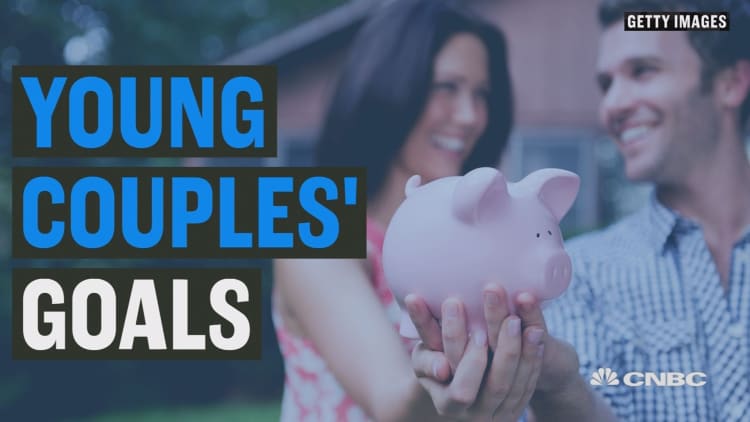
Whether it's coughing up $100 for a dozen roses, bigger bucks for a three-course dinner and really big bucks for a diamond engagement ring, there's no shortage of expensive Valentine's Day offerings for those in love. But being single is no steal either.
For most of the year, there are many financial advantages to being in a relationship, from staying in instead of going out to splitting the rent and Netflix tab.
"You're probably more likely to spend time at home than someone who is single and seeking," said Lindsay Sakraida, the director of content marketing for shopping site DealNews.
"Couples tend to save money on everyday purchases whereas single people have much higher social costs," said Alexa von Tobel, a certified financial planner and CEO of financial planning site LearnVest. Including gym memberships, haircuts and clothing, "being single is expensive," she said.
All that changes on Feb. 14. "Valentine's Day is the one day a year where being single is probably cheaper," according to Sakraida. "Not all couples adhere to the traditions of Valentine's Day, but for almost all single people, it's just any other day."
Altogether, more than half of all consumers plan to celebrate by buying something, spending an average of $143.56 on flowers, jewelry, candy, clothes and other gifts, up from $136.57 last year, according to the National Retail Federation's Valentine's Day consumer spending survey. Total spending is expected to reach $19.6 billion, near 2016's all-time high.
About 35 percent of couples are planning a night out on Valentine's Day, spending $3.7 billion, according to a separate report by WalletHub.
But even those forgoing Valentine's Day can't escape some spending. More than a quarter of consumers who aren't planning a romantic evening have an alternative in mind, such as buying something for themselves or getting together with family and friends, the NRF said.
As for couples who are saving more throughout the rest of the year, keep in mind that after falling love often comes getting married, buying a home and having a baby, which is the most expensive time in your life, von Tobel cautioned.
More from Personal Finance:
Tell-tale signs that your partner is guilty of financial infidelity
Want to live happily ever after? Talk about money
Lasting love? It depends on your credit score


